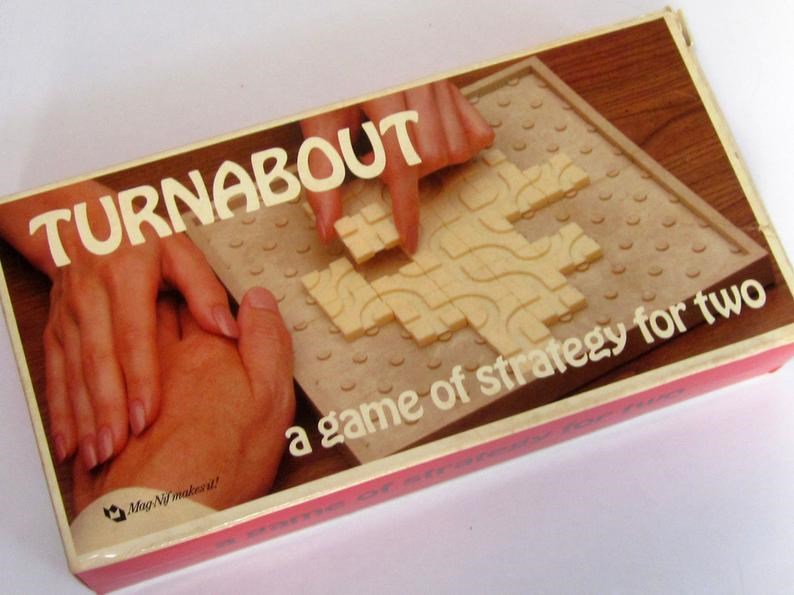When I visit thrift stores I always make sure to check out what games they may have.
Most of the time there is little of interest.
At other times you can get lucky and find gorgeous glass chess sets for under $20 that on eBay are being listed for more than $250.
Or, you might find a game you have never heard of, but as a two-player abstract strategy game you are curious, and for $2.99 you take it home.
The latter situation was exactly the case when I happened upon Turnabout a while back in a store in Yorkton.
The game was first released back in 1882, and as was the case with a number of games of that era no designer credit was given.
The version I found, with all the pieces thankfully, was from Mag-Nif Makes it!
From the box, which has the simple rules on it; “The game consists of 32 identical playing pieces that can be placed at random onto any square on the playing board. Each piece has two sides. One side consists of two curves and is used for making turns. The other side is cross-shaped and is used for going straight - no right-angle turns are allowed at the center of the cross!
“Play begins! The opponents choose for either offensive or defensive play.
“The offense goes first, and puts his playing piece either side up, curved or crossed, on any square on the board. His objective is to construct an unbroken pathway with the crosses and curves from any one side of the playing board to its opposite side.
“The defense goes second, with the single objective of diverting the offense, thus stopping it from completing a path between two opposite sides.
“The players alternate turns and once a player has placed a piece on the board and removed his hand that play is final. Remember, players are free to place pieces on any square on the board without being required to touch a previously played piece.
“The pathways will turn and wind and even cross over themselves as the two players attempt to out-maneuver each other. If one path comes to a dead end, the Offense simply begins another until one is completed and he becomes the winner. If he fails to do so before all 32 pieces have been played, the defense wins the game.”
There is a reason Turnabout is not a familiar game, even to an avid abstract strategy fan – it is not a particularly great game.
The rules are simple enough to allow new players quick access, but the game play is not overly engaging.
But, for a game that is now nearly 40-years old, and at a cost of less than a fancy coffee, it was worth having in the collection.




